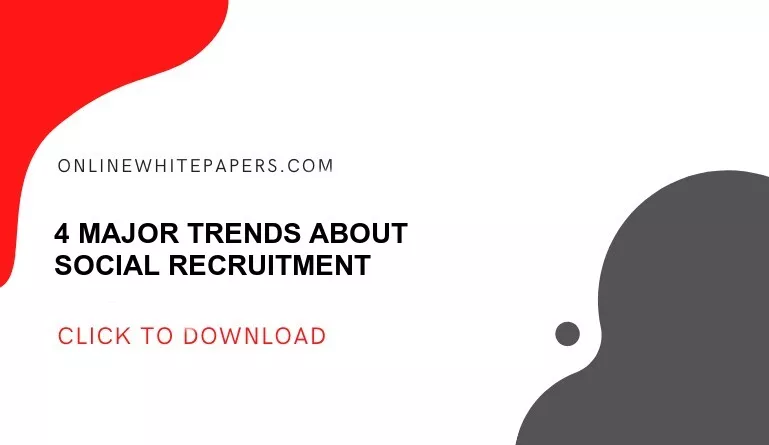In the current social media age, employees regularly share their personal lives, political views, and job-related information online. Social platforms, including Facebook and Twitter, have significantly blurred the lines between personal and professional lives, especially as employees follow their subordinates, supervisors, and colleagues.
While most people believe that the 1st Amendment to the U.S constitution, which prohibits government agencies from restricting their employees’ freedom of speech, gives them a right to say anything online or offline, this doesn’t apply in all situations. The Amendment only applies to government employers. However, such restrictions don’t apply to private businesses and employers.
Laws Limiting Employer’s Right to Fire Employees for Facebook Posts
Even though private employers can terminate employment contracts without legal repercussions, several laws limit employers from disciplining or firing employees for their online posts. However, these restrictions depend on the nature of the posts. They include:
-
Protected Concerted Activities
The National Labor Relations Act provides guidelines for employee unions and employer relations and protects employees’ right to communicate among themselves, especially regarding their employment terms and conditions. This right applies to employees with or without unions.
Recently, the National Labor Relations Board, the agency tasked with enforcing these statutes, has increasingly enforced employee rights against companies that take disciplinary actions against employees who share their concerns online. Comments covered under protected concerted activity include employee comments about their working conditions and workplace discrimination.
-
Political Comments
Some states have legislations that protect employees from disciplinary measures resulting from political alignments and beliefs. In such states, employees can institute legal claims against employers who fire or discipline them for expressing their political views.
-
Off-Duty Laws
Some states also prohibit businesses and private employers from firing employees for Facebook comments that they make during their off time, provided the posts are legal.
-
Retaliation
Several federal and state laws protect employees from facing disciplinary actions or getting fired from their employers for sharing workplace problems, such as discrimination or harassment. Employers who go against these provisions can be sued by affected employees for illegal retaliation.
Online Scenarios Where Employees Can Be Fired
Employees can be fired for their Facebook content in various scenarios. They include;
-
Violating Company Policy
Most companies have a laid-down social media/online policy that describes the allowed and banned posts. Even if your employer doesn’t have a policy, it is prudent to avoid sharing anything about your employment on social media platforms. Examples of posts to avoid include:
- Sharing personal company information – posting about staff decisions, product updates ahead, and private information can get you fired. If your company hasn’t shared anything online, hold off as well.
- Providing endorsements or references – some companies have strict policies guarding references and endorsements. You can be fired for writing a personalized recommendation for a former employee.
- Negative comments – posting negative remarks about your workplace is also risky. Think twice before posting how idle or boring your workplace is.
- Deceptive posts – don’t take sick leave and go swimming at the beach. Even if you do so, don’t post it online. Your supervisors could be watching.
- Inappropriate comments – posting off-color, sexist, or racist comments about your co-workers, clients, or any other person is problematic. Note that an offensive comment can easily go viral and later be associated with your employer. No employer wants a bad PR, especially resulting from an employees’ poor use of social media platforms.
-
Searching for a Job or Handling Personal Matters While at Work
Searching for employment while at work is another costly issue, especially if you are using your employers’ computer and working hours. This is similar to handling your side hustles while at work. Most employers prohibit the use of office computers for personal issues. Employers have the right to limit social media access and other online activities for their employees while at work.
That said, rather than exposing yourself to possible termination; you should be careful with your online activities. Some of the ways employees can avoid being fired include:
- Avoid sharing topics that are considered objectionable or controversial online.
- Avoid sharing work-related issues, especially those that may appear critical to your employer or customers. The NLRB will only protect you from comments that are part of collective employee action.
- If you must share your opinions on Facebook, keep a secret identity.
- Don’t send resumes or handle your side hustles while at work. If you just do, use personal email accounts and personal devices.
Final Comments
Simply put, you can be fired because of a Facebook post or uploads on other social media sites. However, certain laws restrict employer’s right to discipline or terminate their employees’ contracts due to their posts. Just as employees should protect themselves from the legal repercussions of their Facebook posts, employers should also adopt several measures, which include drafting a social media use policy and being consistent when handling these cases.
Always consult employment lawyers for legal advice before firing employees for their online actions.
***
Jessica Eagleton is a law content author based in Austin, Texas. In addition to writing articles for HKM, Jessica also helps research case studies and data analytics for law-based nonprofits.








